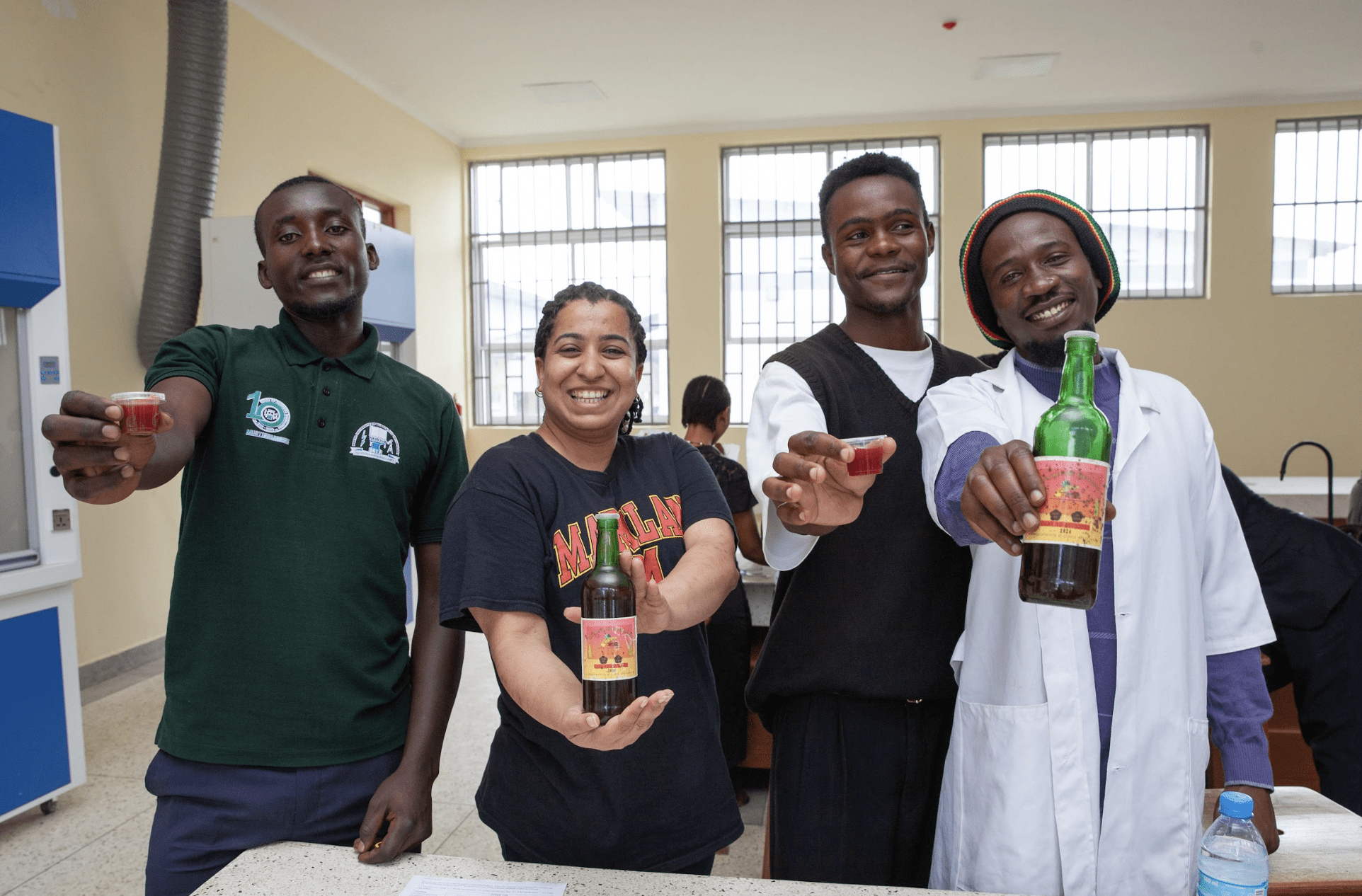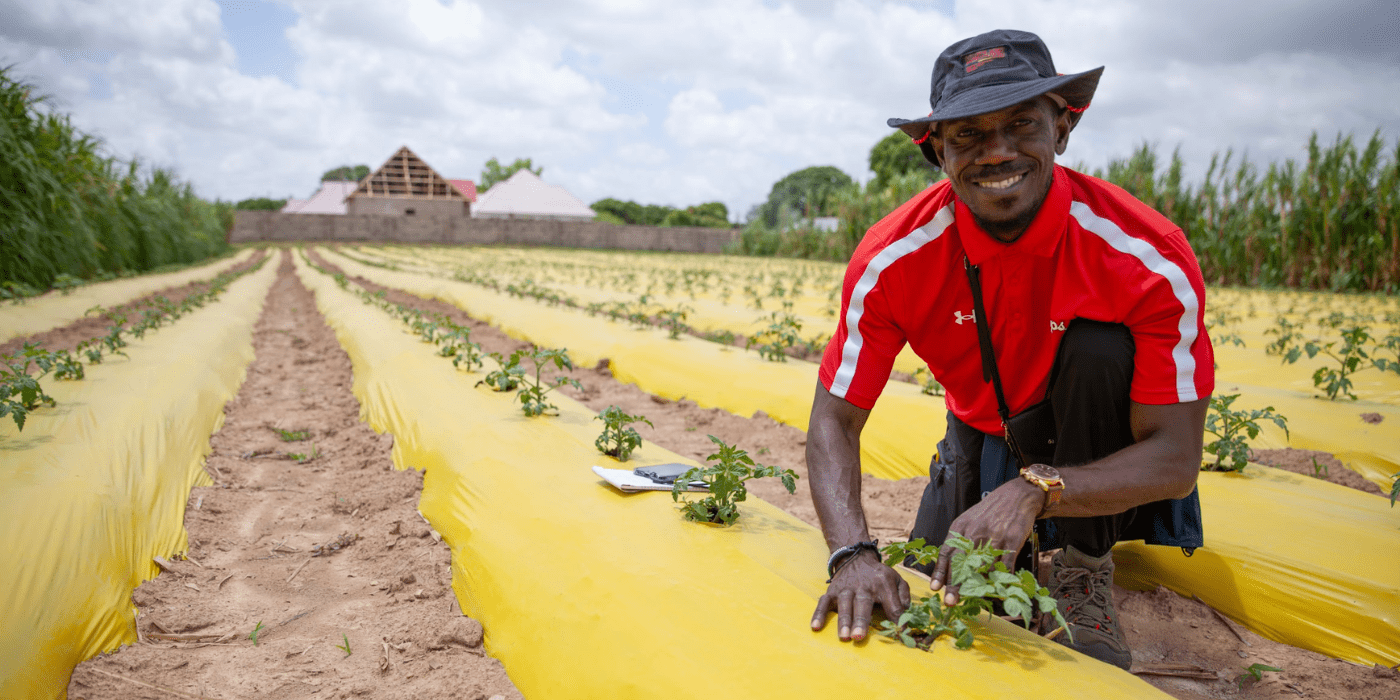
In a small village in the lush blue-green hills of Tanzania’s southern highlands, farmers are sharing their biggest challenges with a group of graduate students from University of Maryland.
“Snails are a problem, destroying crops. We pick them off by hand. And there’s another small bug that eats the maize from the inside out but we don’t have a pesticide for that,” says one woman wearing traditional kanga and bopping a baby on her lap. “But also – and especially – the water has become toxic, contaminated from further up the river.”
Dr. Marco Mng’ong’o, lecturer at Tanzania’s preeminent research university, Mbeya University of Science and Technology (MUST), explains that the chemicals used on farms upriver are increasingly polluting water in the area downriver but researchers have yet to study how the pesticides affect people’s health here.
Gerry Andhikaputra is a first-year epidemiology doctoral student in the School of Public Health researching the impact of climate change on waterborne disease. He sees parallels in the complexity of issues these farmers face with relatively few resources to his home country of Indonesia.
“I now want to take a more interdisciplinary approach to my own research and see how I can collaborate with experts in other fields, like agriculture for example. And I want to better integrate local knowledge into my work,” he said.
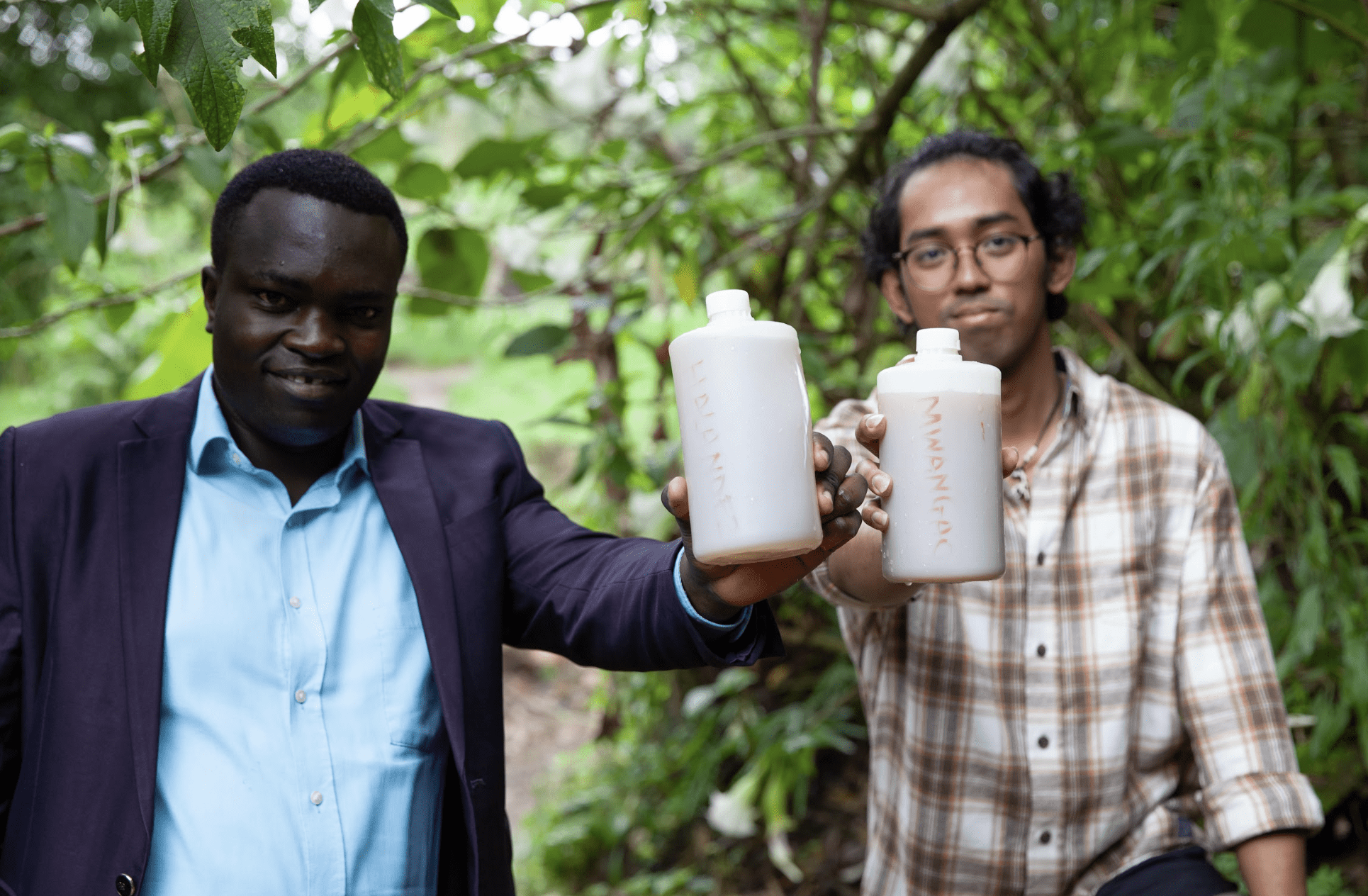
Andhikaputra is one of six Global STEWARDS Fellows visiting Tanzania, hailing from across UMD and bringing diverse expertise to the pressing and interrelated issues of food, energy and water (FEW) in a changing climate. Since 2019, fellow cohorts have travelled to Israel and Nepal to learn about FEW systems challenges and solutions in those countries.
Launched with funding from the National Science Foundation Research Traineeship (NRT) program, the Global STEWARDS program is now being sustained under the $3 million Grand Challenges Grant-funded Global FEWture Alliance, which is pursuing solutions to some of humanity’s most complex FEW problems. The fellows travelled to Tanzania to engage, learn and share knowledge with local partners, farmers and researchers who are working towards sustainable solutions.
“This program gives students the opportunity to gain insight and expertise from our international collaborators, and for them to actively engage in research while in the country,” said Rianna Murray, assistant research professor and graduate director in SPH Department of Global, Environmental and Occupational Health (GEOH), who led the Tanzania trip.
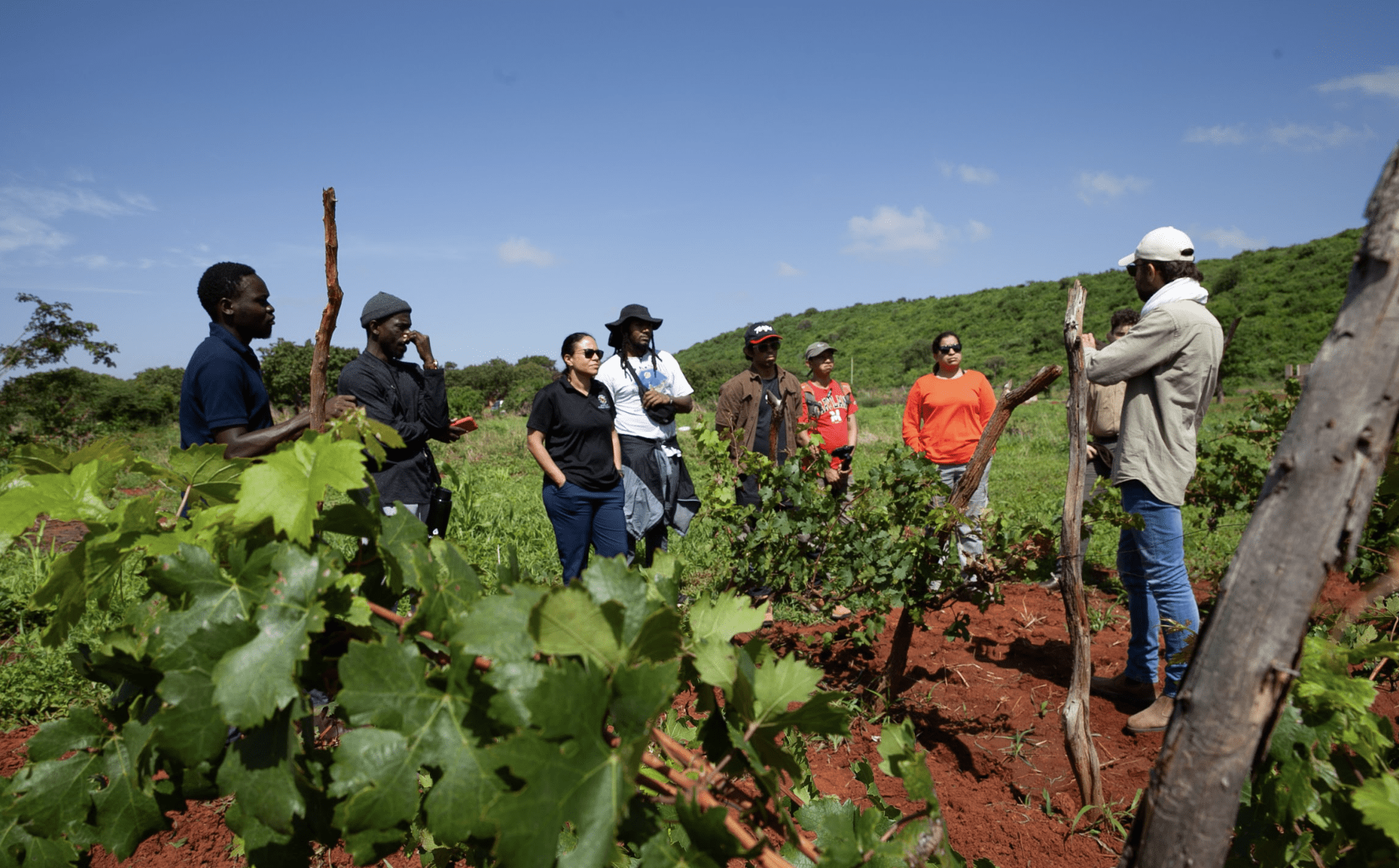
Visiting Africa’s newest wine region
Tanzania is a vast country with multiple micro-climates and – aside from a thriving safari industry – is largely a subsistence agricultural economy with a majority of people living below the international poverty line. Three in four Tanzanians live and farm in rural areas.
The UMD group visited Tanzania’s semi-arid Dodoma region, known for its burgeoning grape-growing and wine industry. Standing in the rich red mud of a collective farm that now grows grapes instead of maize, students learned from UMD partner Cultivaid how this unlikely wine region is seeking to grow into an international market and the sustainable agricultural innovations that they hope will take it there. Agronomists at Cultivaid’s teaching farm also showed how visible demonstrations of successful innovations are essential to gain farmers’ trust.
Fahmi Dwilaksono, a native of rural Indonesia, is pursuing his doctorate in environmental science and technology at UMD, researching anaerobic digestion as a renewable energy. He felt a specific connection with the local farming collectives who work with Cultivaid.
“We are diverse but at some point we're similar as well,” he said. “The moment I visited the farmers, it warmed my heart to see the sense of community. It reminds me of my grandparents in Sumbawa who farmed and worked together in similar ways.”
David Zukerman, Cultivaid country lead, also appreciates the value of global exchange. “It motivates me when visitors come to see our activities – they bring new questions, ideas and inputs, which gives me more perspectives. And with the knowledge of these PhD students, it was even more amplified,” he said.
It wasn’t all work – fellows also experienced Tanzania’s vibrant culture, visiting with Masaai crafts people and local artists, dancing to popular bongo flava tunes, learning at the historic site of the Arab slave trade, and even communing with lions and elephants in Ruaha National Park.
Partnerships and potential
Fellows talked with professors and students at MUST, which is leading work to improve agricultural yields, nutrition levels, food production and storage, water quality and agri-business. MUST lecturer and researcher Dr. Eliezer Mwakalapa is excited about the collaboration.
This exchange of ideas, practices and culture only strengthens a global response to the challenges we all face around food, energy and water.
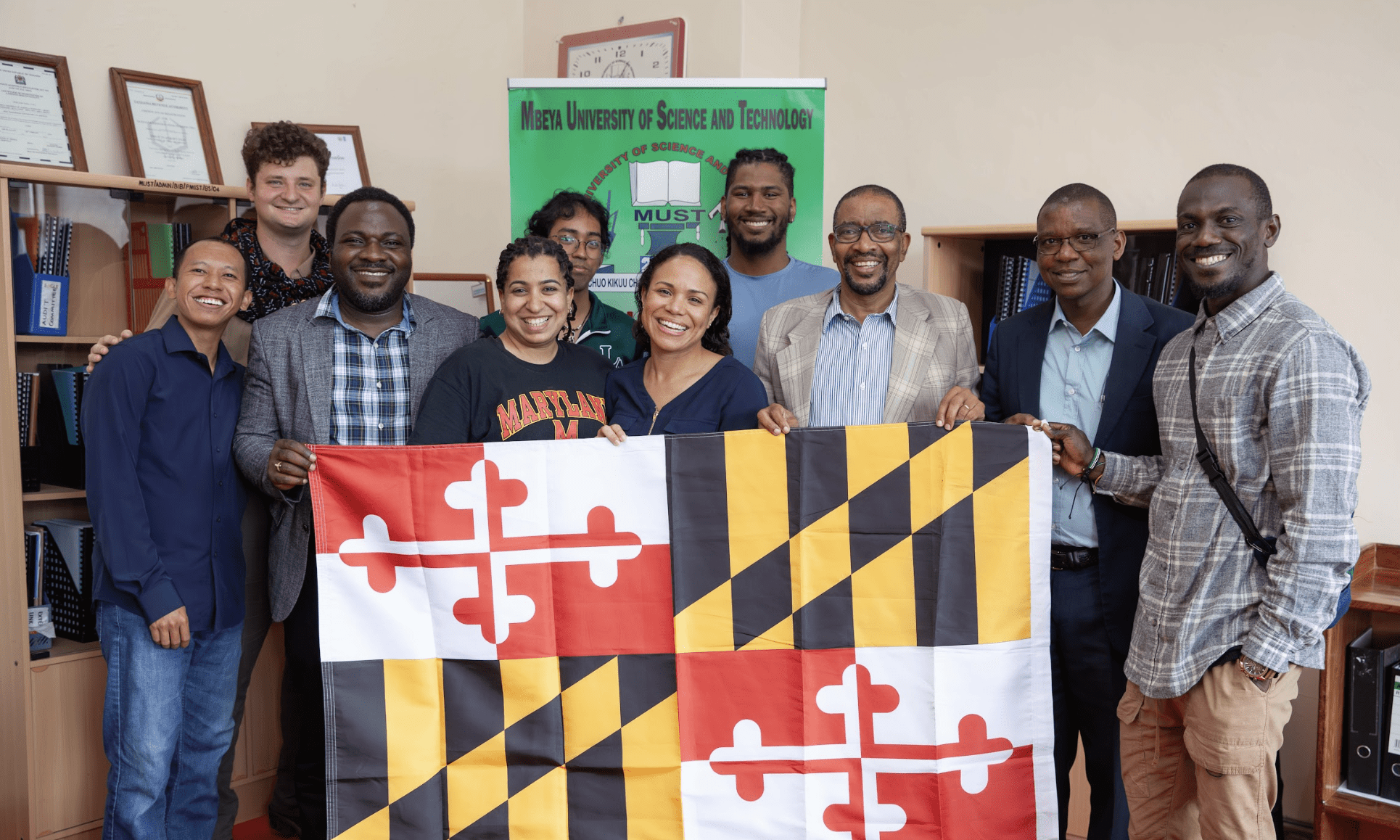
“The partnership between UMD and MUST supports our research capacity and international visibility and also offers UMD students a valuable experience of local realities and issues,” he said. “This exchange of ideas, practices and culture only strengthens a global response to the challenges we all face around food, energy and water.”
John Samura, from Sierra Leone, is a Masters student in UMD’s new agricultural and extension education program. Beyond fueling his keen interest in helping farmers make better economic choices, the trip also boosted his self-confidence.
“I'm an extreme introvert which often limits me. But this trip has given me that confidence that will help me going forward, especially with my research and presentations.”
Fellows also had a chance to exchange directly with Tanzanian science and technology students as they taste-tested innovative nutritious food products such as cookies fortified with eggshell powder, fruit smoothies fortified with Baobab fruit, and even beet and pineapple wine.
For Aishwarya Rao, a food science student completing her UMD doctorate, this was right up her alley.
“I would definitely like to initiate collaborations and promote future exchange trips between students at UMD and MUST,” Rao said. “There is so much potential in these students and in the agriculture sector in Tanzania.”
Read about the group’s Tanzania experience in their own words here.
